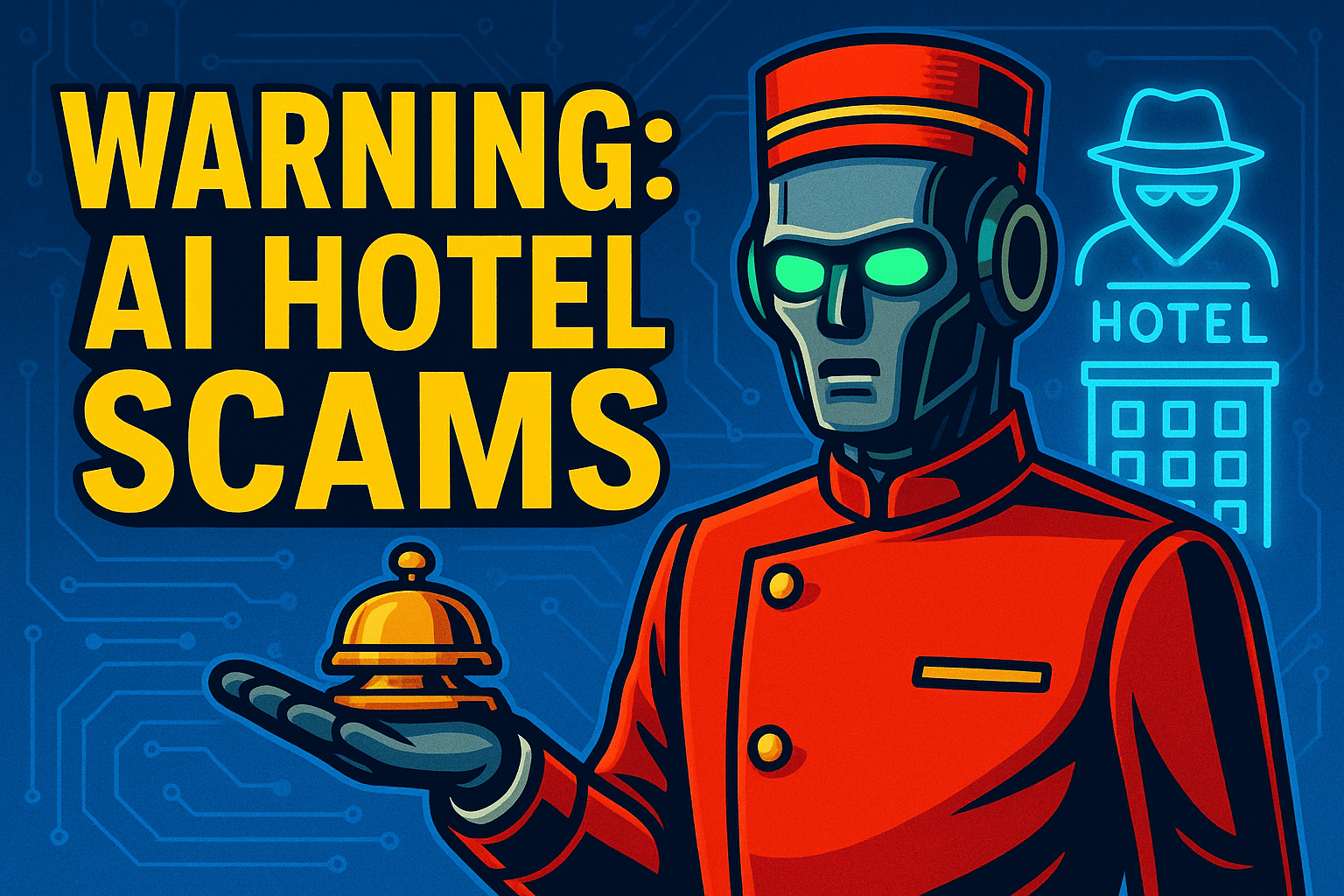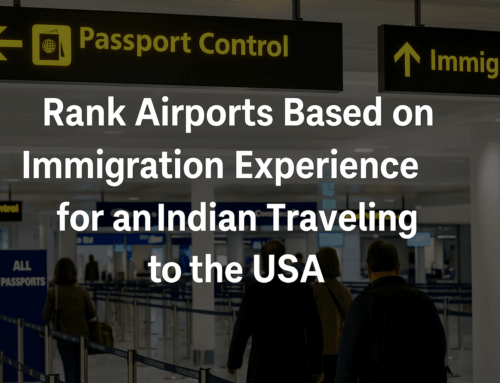WARNING: AI Hotel Scams Trick Smart Travelers in 2025
Contents
- 1 WARNING: AI Hotel Scams Trick Smart Travelers in 2025
Executive Summary
AI hotel scams are becoming more advanced. AI tools create convincing fake hotel offers. Phishing emails, voice cloning, and fake websites deceive even experienced travelers. Booking.com reports scams increasing by up to 900 percent over the past 18 months. This guide explains common scams, their impacts, and protective measures provided by Desmo Travel, your trusted source for secure travel planning.
Chapter 1 – Recognizing AI Hotel Scams
1.1 How Scammers Use AI in Hotel Scams
AI quickly generates realistic content. Criminals input hotel names, photos, and pricing. The result includes convincing descriptions, clear images, and believable reviews.
1.2 Common Types of AI Hotel Scams
- Fake Listings and Websites – AI-created images depict appealing but nonexistent hotels. Scammers copy trusted logos and URLs with minor changes.
- Phishing and Smishing – Fraudulent emails or texts mimic legitimate hotel communications requesting credit card “verification.”
- Voice Cloning (Vishing) – AI-generated voices imitate hotel staff, family members, or financial institutions using short voice samples from social media.
- Deepfake Videos – AI-generated videos impersonate managers directing staff to authorize money transfers.
- Synthetic IDs – Fake guest profiles blend genuine and false details to bypass checks.
- Fake Reviews – AI bots flood platforms with positive reviews to boost fraudulent hotel listings in search results.
Chapter 2 – The Impact of AI Hotel Scams on Travelers
2.1 Financial and Emotional Consequences
AI scams cost U.S. travelers over $1.2 billion annually. About one-third of victims lose $500 or more, spending weeks afterward correcting issues and experiencing anxiety.
2.2 Loss of Trust in Booking Platforms
Scams infiltrate legitimate hotel booking channels, making fraudulent communications appear authentic. Each incident weakens traveler confidence in online bookings.
Chapter 3 – How to Stay Safe from AI Hotel Scams
3.1 Safety Tips for Travelers
- Verify Independently – Enter hotel URLs manually or contact hotels directly using independently sourced phone numbers.
- Identify Red Flags – Unrealistically perfect images, overly general positive reviews, and newly created profiles indicate scams.
- Use Credit Cards – They offer built-in fraud protection and clear refund processes.
- Pause Under Pressure – Scammers rely on urgency; take time to verify requests.
- Enable Two-Factor Authentication – Secure travel-related accounts with additional verification codes.
3.2 What Hotels and OTAs Can Do to Prevent AI Hotel Scams
- AI-Based Fraud Detection – Implement machine learning systems to recognize unusual booking patterns instantly.
- Deepfake Detection Tools – Use software to verify voices and videos against trusted sources.
- Staff Training – Simulate scam attempts regularly to ensure employees recognize fraudulent tactics.
- Enhanced Login Security – Deploy multi-factor authentication to prevent unauthorized account access.
- Clear Reporting Channels – Provide simple methods for guests to report suspicious activity quickly.
Chapter 4 – The Future of AI Hotel Scams and Travel Security
AI will soon manage bookings and payments autonomously, providing convenience but also increasing vulnerability. Hotels and booking platforms must rigorously test AI functions for security risks before implementation.
Key Takeaways
- AI significantly increases the sophistication of travel scams.
- Watch out for overly attractive pricing, urgent payment demands, altered URLs, and requests for wire or cryptocurrency transactions.
- Always verify independently, use secure payment methods, and keep security software updated.
- Hotels and OTAs must integrate AI fraud detection with human oversight.
- Education and communication are critical to effectively combat scams.
FAQs
1. What is the most common AI hotel scam?
Fake listings and phishing scams are currently the most common.
2. How do scammers use voice cloning?
Scammers use short voice clips from social media to create realistic voice clones.
3. Can I trust reviews on hotel booking sites?
Be cautious; AI-generated fake reviews are increasingly common. Check multiple sources and look for verified reviews.
4. What should I do if I suspect a scam?
Stop engaging, verify independently, and report it immediately to relevant authorities.
5. Why are credit cards safer for hotel bookings?
They offer fraud protection and clear refund options, making them safer than debit cards or wire transfers.
Trust Us
Stay safe while booking your travels. Trust Desmo Travel for reliable updates and secure booking practices.
Disclaimer
This article is intended for informational purposes only. Desmo Travel does not guarantee complete protection from online fraud or AI-related scams. While we aim to provide accurate and up-to-date information, users are responsible for verifying details and making secure decisions when booking travel services. Desmo Travel is not liable for any losses, damages, or inconveniences resulting from fraudulent activity, third-party websites, or user actions. All trademarks and brand names mentioned belong to their respective owners. For legal advice, please consult a licensed professional.

























